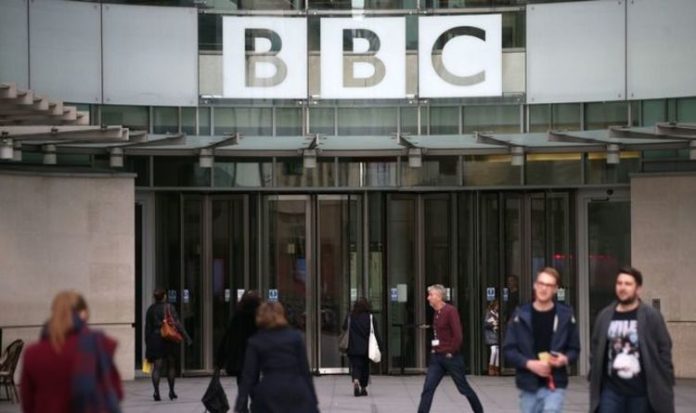In its annual report published on Tuesday, the BBC admitted 80 percent of 16-24 year-olds watched the BBC each week on average. This was only slightly ahead of YouTube’s performance within the same age bracket. In third place in the popularity stakes was Spotify before Facebook and Netflix.
Young adults who tuned into the Beeb spent more than seven hours per week on average consuming services on the network.
This was above the broadcaster’s target range of six to seven hours.
The report said: “This means that the BBC – across all its portfolio – was the brand with which young adults spent most media time in 2019/20.”
But they said the amount of time young adults spent watching BBC programmes over the past 12 months had dropped from the previous year.
The corporation cited an increase in competition as a reason for the fall.
The report added: “Whilst 16-34s spent more media time with the BBC than with any other brand in 2019/20 and usage was within the target range, the amount of time spent was lower than the previous year given the increasing strength of competition, and was down proportionately more than older age groups.
“So, whilst the majority think that the BBC delivers the public purposes effectively, the scores that they gave in 2019/20 tended to be lower than those from over 55s across a range of measures.”
The BBC also said that eight in 10 children and young adults in the UK watch the BBC on average each week.
READ MORE: TV Licence warning: New scam targets unsuspecting fee payers
In May the BBC came under fire for its “ridiculous” plan to double its budget for youth-focused channels amid a string of cuts.
The Beeb said it was considering bringing back BBC Three as a broadcast channel, four years after it transitioned to online.
The plan was announced just three months before the BBC ended its free TV licences for most over 75s.
Taxpayers blasted the suggestion on Twitter, with some calling it “ridiculous”.
On Tuesday the Beeb’s new boss defended the policy on means-testing licence fees for older viewers.
The universal right to a free TV licence ended last month for the over-75s and only those in receipt of pension credit will not have to pay.
BBC director-general Tim Davie, who took over from Lord Tony Hall earlier this month, said the move had been a “really tough decision” for the BBC.
Mr Davie said: “I was part of the board that made the decision, which was driven by a balance of trying to ensure that we protected the value people get from the BBC – because frankly, taking £700 million out would have disastrous consequences in terms of the provision that we were giving to people – but also trying to get a fair solution, and that is why we’ve gone for what we see as a properly balanced proposal.
“I have no plans to reverse that decision and support where we are at the moment.”







